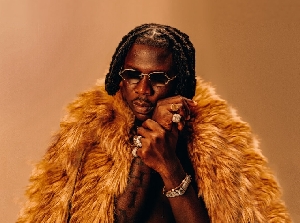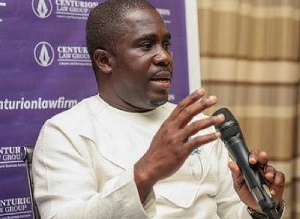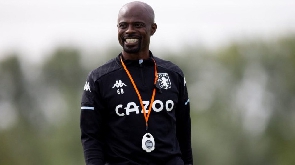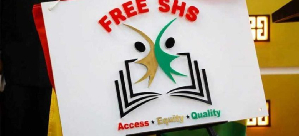By Kwame Okoampa-Ahoofe, Jr., Ph.D.
In the United States, the month of March has been widely observed to provoke rampant instances of lunacy among citizens disposed towards violence. Oftentimes, such lunacy comes in the form of shooting sprees in which innocent people lose their lives at the hands of clinical basket cases with an axe, or two, to grind. In recent years, such violent incidents have found near-exclusive expression among teenagers and/or high school pupils. As a result, there has been coined the term “March Madness.”
In Ghana, there has also developed an equally unsavory phenomenon called “June 4th Lunacy.” The latter is an allusion to the 1979 uprising in which some disgruntled low-ranking military officers took up arms and violently ousted Gen. F. W. K. Akuffo’s so-called Supreme Military Council (SMC II) junta. Nearly two years before, Gen. Akuffo, then Army Chief of Staff, had ousted then-Gen. I. K. Acheampong’s SMC I in a bloodless palace coup. The latter had mischievously attempted to civilianize himself as well as entrench his 5-year-old government by calling for an Nkrumaist type of Union Government (UNIGOV) based on a one-party system, and had conducted a nationwide referendum, which was widely regarded as heavily rigged, for the purpose.
Where June 4th comes into the equation, as it were, however, regards a then wholly unknown Ghanaian Air Force pilot, a half-Scottish flight lieutenant by the name of Jeremiah John Rawlings, who had attempted to violently oust the Acheampong junta and was awaiting court martial. Rawlings and his rag-tag gang of malcontents would take advantage of the political laxity created by Gen. Akuffo’s palace to launch his extortionate and shamelessly self-righteous political career which would last some two decades and bring the already fragile Ghanaian economy to a screeching halt.
In sum, June 4, 1979, on the Ghanaian political calendar, represents the bloodiest moment in our country’s history, as Mr. Rawlings, a 31-year-old professionally frozen Air-Force pilot, proceeded to summarily execute almost every prominent military operative of the Akuffo junta. The most dastardly of all, however, was when Messrs. Rawlings and Boakye-Djan, among others, summarily condemned the forcibly retired ex-Gen. Acheampong, already stripped of every one of his military honors and credentials, to death and had him executed by firing squad for crimes cavalierly generalized as “rank corruption.” A similar fate would befall Gen. Akuffo and eight others, as well as a countless number of Ghanaian civilians who had played no active or major role, whatsoever, in the rank economic mismanagement that had, admittedly, characterized both SMC I and II.
In retrospect, many students and scholars of postcolonial Ghanaian history, including Professor Kofi Awoonor, no friend of Mr. Acheampong’s, have observed Gen. Acheampong’s 5-year rule (1972-77), through the so-called National Redemption Council (NRC) and SMC I, to be, unarguably, the most economically productive and conciliatory of any Ghanaian military regime. Acheampong has also been described as the most benign of all the Ghanaian dictators, including Mr. Kwame Nkrumah, the country’s first president.
Conversely, the greatest achievement of Flt.-Lt. Rawlings’ so-called Armed Forces Revolutionary Council (AFRC) has been observed to have entailed the unconscionable stalling of the development of modern Ghanaian democracy for some twenty years, even as the AFRC, expediently morphed into the post-Limann era Provisional National Defense Council (PNDC) and the so-called National Democratic Congress (NDC) and staunchly and shamelessly pursued Dr. Limann’s brutally preempted free-market reformist agenda in collaboration with the “infamous” Bretton Woods institutions. Flt.-Lt. Rawlings, with the self-serving connivance and blessings of the latter institutions, as well as other Western capitalist establishments, would curiously knight “Jerry-the-Terrible” as Ghana’s neo-reformist democrat and founder of our country’s Fourth Republic.
Alas, as we fast approach the month of June, some Ghanaians with little sense of the country’s authentic history have been calling for the reinstatement of June 4 as a national holiday, a flagrantly bloody era in our history when the vast majority of bona fide Ghanaians were callously reduced to mere spectators of their own affairs. And here also must be added the fact that for nearly twenty years, June 4th was celebrated as a forcibly imposed national holiday at the expense of the very hardworking Ghanaian whose crucial capitalist efforts, geared towards the rapid development of our country, were both summarily expropriated and derided by these faux-Marxists as tantamount to raw theft and criminal exploitation of the masses.
Interestingly, while it claimed to be predicated upon the laudable principles of “probity and accountability,” admittedly, a laudable pair of principles for which the lives of the likes of Generals Acheampong, Odartey-Wellington, Afrifa and Akuffo, among others, were sacrificed – the Akan Supreme Court judges would lose their lives nearly three years later – Ghanaians have yet to be publicly and officially informed about the salary scales of Flt.-Lt. Rawlings and his wife, Nana Konadu Agyeman, between 1982 and 1992, as well as the salaries of most of the cabinet and other prominent operatives of the so-called Provisional National Defense Council (PNDC).
Then also, as Prof. Mawuse Dake observed in his book The Lamentations of a Patriot, on the eve of the PNDC’s handover – actually the latter’s deft and devious morphing into the so-called National Democratic Congress (NDC) – Mr. Rawlings and his henchmen and women voted themselves huge sums of money disguised as “ex-gratia awards,” amounts which have yet to be publicly disclosed. And so it would be nothing short of the unreservedly laudable if Rawlings’ hangers-on like Mr. Kofi Adams, in calling for the reinstatement of June 4th as a national holiday, could also, in the laudable name of “probity and accountability,” call on the Atta-Mills government to launch an independent probe into the PNDC phase of the NDC, as it were, in much the same manner that President Atta-Mills was recently reported to have demanded a forensic roll call of all Ghanaians who served in any ministerial capacity, or the latter’s equivalent, under the Kufuor administration.
Ultimately, however, what needs highlighting is the glaring fact that June 4th and the AFRC were clearly about a decadent and publicly embarrassed Ghanaian military ineffectually attempting to clean up its own dirty act before an increasingly cynical and pistol-whipped Ghanaian public and a contemptuously amused international community. Civilian collaborators notwithstanding, June 4th was, nonetheless, definitively about the Ghanaian military, as a social institution, desperately attempting to redeem its public self-image, at least as the likes of Messrs. Rawlings and Boakye-Djan would have the rest of us believe.
Still, whether in the grim face of what we have learned about the untold horrors of both the AFRC and the PNDC regimes these efforts had been sensible, or even vaguely constructive, remains to be seen.
*Kwame Okoampa-Ahoofe, Jr., Ph.D., is Associate Professor of English, Journalism and Creative Writing at Nassau Community College of the State University of New York, Garden City. He is the author of “Ghanaian Politics Today” (Atumpan Publications/lulu.com, 2008). E-mail: okoampaahoofe@aol.com. ###
Opinions of Wednesday, 3 June 2009
Columnist: Okoampa-Ahoofe, Kwame
June 4th was a purely Military Affair
Entertainment

















